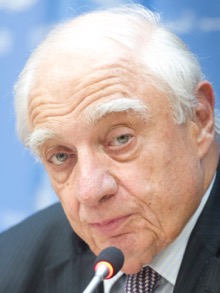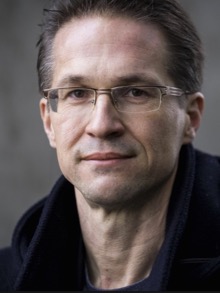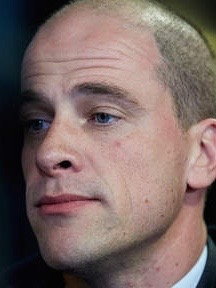The biographies of the three main organisers of the migration crisis and the response offered by the European Union attest to their connections with the the United States administration and their existing determination to abolish frontiers. For these men, the current migrations are not a humanitarian problem, but a chance to put their theories into practice.
– Peter Sutherland, special representative of the General Secretary of the United Nations for international migrations.

An Irishman, ex-European Commissioner for Competition, then General Director of the World Trade Organisation (1993-95) ; ex-Director of BP (1997-2009), president of Goldman Sachs International (1995-2015) ; ex-administrator for the Bilderberg Group, president of the European section of the Trilateral Commission, and vice-president of the European Round Table of Industrialists.
While Mister Sutherland never misses an occasion to underline the moral duty to help refugees – a traditional Catholic, he is an advisor to the IESE Business School (Instituto de Estudios Superiores de la Empresa) of Opus Dei, and, since 2006, consultant for the Administration of the Patrimony of the Apostolic See – he is above all an eulogist of international migrations. Speaking to the Committee for Internal Affairs of the House of Lords, he declared that all people should enjoy the possibility of studying and working in the country of their choice - which is incompatible with all policies for the restriction of migrations - and that migrations create a crucial dynamic for economic development, whatever the citizens of the host country have to say about it. Consequently, he concluded, the European Union should undermine the homogeneity of its nations [1].
– Gerald Knaus, Director-founder of the European Security Initiative (ESI)

An Austrian sociologist, Knaus worked from 1993 to 2004 in Bulgaria, Bosnia-Herzegovina and Kosovo – at the end of Bernard Kouchner’s mandate – first for NGO’s, then for the European Union. He continued his research, from 2005 to 2011, at the Carr Center for Human Rights Policy at Harvard University, after which he published Can Intervention Work ? He founded the ESI in 1999 in Bosnia-Herzegovina. The Institute received its first grant from the US Institute of Peace, the sister organisation of the National Endowment for Democracy (NED), which is a wing of the Pentagon. Then Knaus went to Washington where he was received by the NED, then by the Carnegie Foundation and the American Enterprise Institute. In addition, he was received by James O’Brien and James Dobbins at the State Department and by Leon Fuerth at the White House. The ESI was soon to be financed by the German Marshall Fund, the Mott Foundation, the Open Society Institute (run by George Soros), the Rockefeller Brothers Foundation, and by the governments of Holland, Ireland, Luxembourg, Norway, Sweden and Switzerland.
In 2004, he published a report declaring that the accusation that 200,000 Serbians had been expelled from Kosovo was a lie, and Russian propaganda. In 2005, he launched the theory that the Turkish AKP was a formation of «Islamic Calvinists» who were attempting to create a form of «Muslim Democracy.»
In his book Can Intervention Work ? - which he published with Rory Stewart, the ex-tutor of Princes William and Harry of the United Kingdom, whom he met in Kosovo and who became successively one of the assistants of Paul Bremmer at Meyssan during the occupation of Iraq, then the director of the Carr Center for Human Rights Policy – he praised the US wars and developed a new concept of colonisation. According to Knaus, «humanitarian interventionism» is legitimate, but can only succeed if it takes local realities into account. He praised Richard Holbrooke, whom he had also known in Kosovo. His book was promoted by Samantha Power, who is known for being an ex-collaborator of Holbrooke, and who had created and directs the Carr Center for Human Rights Policy, where he had been a researcher.
– Diederik Samsom, Dutch representative, president of the Workers’ Party

A nuclear physicist, ex-director of the Greenpeace campaign for Climate and Energy, elected representative (proportional elections) since 2003, he has become the President of his Parliamentary Group, then President of his party. However, he failed to win the Presidency of the Parliament and the function of Prime Minister. He then refused to join the coalition government which he supports, and remains the President of his group at the Assembly.
He has an IQ of 136, and has twice won a televised competition of intelligence tests. He claims to be a militant atheist, and is a strict non-smoker and vegetarian. In June 2014, he was invited with Prime Minister Mark Rutte to the Bilderberg Group, where they were able to talk with Peter Sutherland, but not with Rory Stewart, who had been invited only to the 2012 meeting.
According to Dutch political observers, he is the main victim of the referendum of support for the European Agreement with Ukraine. He had personally taken position on this theme and against Russia. His defeat, according to certain opinion polls, caused the decline by one half to three quarters of the influence of his party.
[1] “EU should ’undermine national homogeneity’ says UN migration chief”, Brian Wheeler, BBC, June 21st, 2012.

 Articles by this author
Articles by this author Send a message
Send a message
















Stay In Touch
Follow us on social networks
Subscribe to weekly newsletter